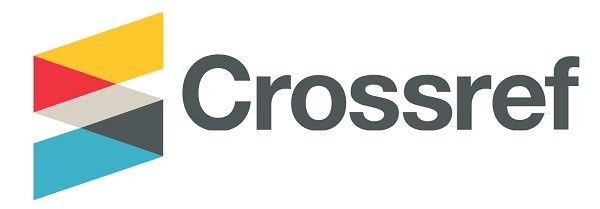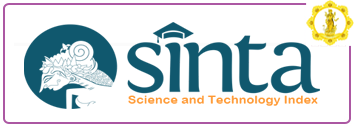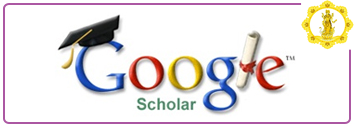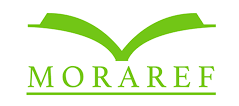Pendidikan Karakter Memperkuat Eksistensi Pendidikan Agama Hindu pada Era Industri 4.0
DOI:
https://doi.org/10.25078/jpm.v7i2.2166Keywords:
pendidikan Hindu, industri 4.0, disrupsiAbstract
This article is based on research that aims to align Hindu education with industrial development 4.0, which is an era of disruption in order to make it able to answer challenges also able to overcome the massive obstacles of Hindu education implementation without losing the essence of it. The research has been conducted by a qualitative approach; data were collected by the technique of observation, interview, documentation, and literature study; the data analysis utilized descriptive technique. The result of the research showed there are three important things that Hindu education needs to attempt, those are (1) switching the old mindset which is chained by the bureaucratic become the disruptive mindset that put cooperative ways forward, (2) applying self-driving in order to create reforms as the demand of 4.0 era, (3) has to be able to develop a digital basis new service system. Finally, it can be concluded that science and technology development in the global age delivers challenges and obstacles to Hindu education which also continues to develop and change. Therefore, Hindu education in this disruption revolution era 4.0 has been demanded to be sensitive to community social changing phenomenons, willing to do self-disruption through character education because if it persistence to stay on the old method and management also being sealed from the dynamic world, its existence will be slumped and underdeveloped.
Downloads
References
Agus, M. (2017, Nivember 5). Pendidikan 4.0, Apa Itu? Retrieved Maret 7, 2021, from Eduaksi-Inspirasi Sekolah Indonesia: https://eduaksi.com/pendidikan-4-0-apa/
Antara, I. S. (2015, Maret 11). Kepemimpinan dan Kelangsungan Hindu Kedepan. Retrieved Maret 6, 2021, from Kompasiana: https://www.kompasiana.com/peradah/552b31c3f17e614b7dd623c7/kepemimpinan-dan-kelangsungan-hindu-kedepan
Departemen Agama. (2003). Intisari Ajaran Hindu. Surabaya: Paramita.
Hamid, E. S. (2017, Juli 27). Disruptive Innovation: Manfaat Dan Kekurangan Dalam Konteks Pembangunan Ekonom. Retrieved Maret 7, 2021, from Fakultas Hukum Universitas Islam Indonesia: https://law.uii.ac.id/wp-content/uploads/2017/07/2017-07-27-fh-uii-semnas-disruptive-innovation-manfaat-dan-kekurangan-dalam-konteks-pembangunan-ekonomi-Edy-Suandi-Hamid.pdf
Irawan, J. F. (2018, Pebruari 9). Tantangan Bagi Perguruan Tinggi dalam Menyongsong Era Digital. Orasi Dies FE 63_2018_Tantangan bagi perguruan tinggi-p. Bandung, Jawa Barat, Indonesia: Universitas Katolik Parahyangan.
Kasali, R. (2017). Disruption. Jakarta: PT. Gramedia Pustaka Utama.
PHDI. (2001). Himpunan Keputusan Seminar Kesatuan Tafsir Terhadap Aspek-Aspek Agama Hindu. Denpasar: Parisada Hindu Dharma Pusat.
Priatmoko, S. (2018). Memperkuat Eksistensi Pendidikan Islam di Era 4.0. TA‟LIM : Jurnal Studi Pendidikan Islam Vol.1 No.2, 221-239.
Prodjo, A. W. (2020, Januari 16). di Era Revolusi Industri 4.0, Guru Harus Terus Menyesuaikan Diri. Retrieved Maret 7, 2021, from Kompas.com: Edukasi.Kompas.com/read/2020/01/16/18130031/di-era-revolusi-industri-4.0-guru terus menyesuaikan.
Putri, D. (2018, Vol. 2 No. 1). Pendidikan Karakter Pada Anak Sekolah Dasar di Era Digital. AR-RIAYAH : Jurnal Pendidikan Dasar, pp. 37-50.
Putri, D. P. (2018). Pendidikan Karakter Pada Anak Sekolah Dasar di Era Digital. AR-RIAYAH : Jurnal Pendidikan Dasar vol. 2, no. 1, 37-50.
Rokhman, Fathur;dkk. (2014). Character Education For Golden Generation 2045 (National Character Building for Indonesian Golden Years). ScienceDirect, 1161 – 1165.
Sai Baba, B. (2000). Pembentukan Karakter yang Baik pada Anak Didik. Surabaya: Paramita.
Sari, D. K. (2016). Bingkai Pendidikan Islam di Mata Soekarno (Sebuah Resensi). Pemikiran Pendidikan Islam Soekarno. Yogyakarta, D.I. Yogyakarta, Indonesia: Samudra Biru.
Sefudin, A., & Darwin, M. (2020, Oktober Vol. 1 No. 2). Perbandingan Teori Disrupsi pada Marketing di Era Industri 4.0 Menurut Hermawan Kartajaya dan Rhenald Kasali. KOMITMEN: Jurnal Ilmiah Manajemen, pp. 25-39.
Suwardana, H. (2018). Revolusi Industri 4.0 Berbasis Revolusi Mental. Jati Unik Vol. 1 No.2, 109-118.
Wahyudi, A. (2020, Juni Vol. 08, No. 01). The Methodology of Development for Learning Implementation Planning in the Industrial Era 4.0. Edukasi, pp. 155 - 165.









